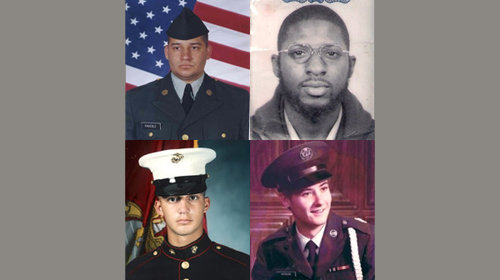
Today in Portland, Ore., I will be in federal district court with my colleague Ahilan Arulanantham asking a judge to place a long-overdue check on the government’s secretive No Fly List. The ACLU filed a lawsuit after the government put our clients – 13 Americans including four military veterans – on the blacklist that bans them from flying to or from the United States or over U.S. airspace. Each of our clients sought an explanation and a fair hearing where they could clear their names through the only redress mechanism available, the Department of Homeland Security’s Traveler Redress Inquiry Program. The government refused.
Ahilan and I will argue that the government’s decision to ban people from flying without meaningful recourse violates the Fifth Amendment’s guarantee of due process. Our argument is really quite simple: when the government bans people from flying by putting them on the No Fly List, it deprives them of an essential means of travel in modern life and smears them as suspected terrorists. These are real harms that hurt real people, and they deny our clients their constitutionally-protected right to travel and interest in protecting their reputation.
We will also explain that what our clients seek is quite simply the rudiments of due process: reasons why the government put them on a blacklist, and a chance to challenge those reasons. These basic procedures are necessary to protect against government mistakes and ensure that the blacklist is used fairly and correctly.
Based on the Justice Department’s briefs filed in the case, we already know what the government will argue to defend its inadequate “redress” program. It will claim that people who are banned from flying do not have a constitutional right to fair and adequate procedures to challenge their inclusion on the No Fly List because they can travel by car, bus, or train. But if the government is right that banning people from flying does not deprive them of their right to travel and does not entitle them to meaningful process, then what’s to stop it from putting people on a No Drive List and similarly refusing to provide any after-the-fact procedures to correct errors? The Constitution does not permit that.
The government will also defend its of refusing even to confirm or deny our clients’ No Fly List-status (much less actually providing the reasons for their inclusion in the list) based on the argument that disclosure will cause national security harms. But the government’s arguments are premised on the absurd notion that disclosure of our clients’ status will somehow be a surprise. It is not: our clients were not only prevented from flying, they were explicitly told by government agents that they are on the No Fly List.
We hope to persuade the court to reject the government’s arguments and recognize the devastating impact that the Glomar policy has had on our clients. Without a fair process to clear his name, in the three years since this lawsuit was filed, U.S. Air Force veteran Steven Washburn has been separated from his wife, who is in Ireland and can’t get a visa to travel to the United States. For the same reason, U.S. Marine Corps veteran Abe Mashal could not fly to serve potential customers of his dog-training business who don’t live near his Illinois home or travel to his sister-in-law’s graduation from missionary school in Hawaii. Neither man poses a threat to aviation security or knows of any reason why the government banned him from flying.
It does not make our country safer if the government refuses to provide a meaningful process that allows innocent people to correct the errors that led to their mistaken inclusion on the No Fly List. We will ask the court to finally put a check on the government’s use of a blacklist that denies Americans the ability to fly without giving them the explanation or fair hearing that the Constitution requires.
Learn more about No-Fly List: Sign up for breaking news alerts, , and .

